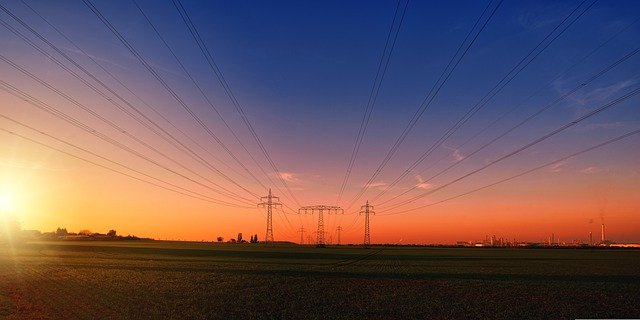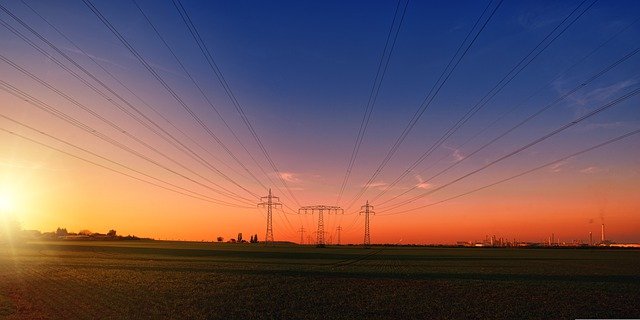In this article, we are going to learn the following things:
- What is electricity
- Uses of electricity
- Types of Electricity
- What is Alternating Current (AC)
- What is Direct Current (DC)
- Difference between AC and DC
First of all, we will understand What is electricity.
What is Electricity
Electricity is a kind of energy that is not visible but its presence can be felt by its effects. Electricity is a form of energy that is produced by the conversion of other forms of energy like Mechanical energy, Nuclear energy, Heat energy, Chemical energy, etc.
To understand the concept of Electricity, we must understand what is an atom. This topic is related to chemistry but it is the basis of electricity. As we all know that an atom consists of protons, neutrons, and electrons. The protons and neutrons are located in the center of the atom but electrons are located around the nucleus of the atom and it is a negatively charged particles which are revolving around the nucleus. The proton is having a positive charge and the neutron is neutral and having no charge.

Sources of Electricity
Now we will look after the sources of electricity. Sources of electricity are given below:
- Batteries
- Thermocouple
- Generator
We will discuss each of them one by one.
1. Batteries
Batteries are mostly used in electronics and in automobiles etc. Batteries store electrical energy in the form of chemical energy and give power when required.
2. Thermocouple
when two dissimilar pieces of metals are joined together and their joined end is heated in a flame then a voltage or potential difference is induced across the end of the wire. This kind of device is known as Thermocouple and is used in measuring the temperature of furnaces.
3. Generator
Generators are machines that convert mechanical energy into electrical energy. H a conductor rotates between the magnetic field and EMF will be produced. There are many kinds of generators that generate power. For example,
- Thermal power station
- Solar power station
- Wind power station
- Hydro plant
- Nuclear power station
Uses of Electricity
We are living in the 21st century and it is almost impossible to live without electricity. From very small lamps to street lights, electricity is required. Life will be very difficult without electricity. Electricity is used in the following things.
- Lighting
- Communication
- Entertainment
- Power
- Heating
- Industries
- In batteries
- Hospitals
- Automobiles etc.
Electricity Types
There are two kinds of electricity:
- Static Electricity
- Dynamic Electricity
1. Static Electricity
Let us understand static electricity by an example. During our schooling days, we used to rub the dry glass rod with this Silk cloth. When we rub the dry silk cloth with the dry glass rod then the Silk cloth receives the negative electrons and therefore becomes negatively charged and the rod gives out the negative electrons and becomes positively charged.
As we know like charges repel each other and unlike charges attract each other. So the electrical charge on the Silk cloth is stationary and that is why it is called static electricity and it cannot be transferred from one place to another.
2. Dynamic Electricity
Dynamic electricity is the electricity in which the electrons are in motion. This kind of electricity is carried through cables and wires and can be transmitted from one place to another. This type of electricity can be produced by batteries, a generator, and an alternator.
Direct Current (DC)
The magnitude and the direction of the current do not change in the case of Direct Current. The steady current flows from the positive terminal to the negative terminal. For example, batteries and DC generators.
Alternating Current (AC)
In the case of Alternating Current, the current flows from the phase terminal to the neutral terminal and both the direction and magnitude of the current will be changing at definite intervals of time.
Difference Between AC and DC
There are a lot of differences between AC and DC which are given below.
| S.No. | Alternating Current (AC) | Direct Current (DC) |
| 1 | Voltage can be stepped down or Step Up by using the Transformer | It is not possible in the case of direct current |
| 2 | Less maintenance | More maintenance is required |
| 3 | Alternating current can be generated in the range of 6600V, 11KV, and 33KV. | It can be generated up to 6000V only |
| 4 | AC generators can run at high speeds | It cannot run at high speed |
| 5 | Transmission cost is less | Transmission cost is high |
| 6 | In the case of alternating current, brushes and slip rings are used to collect the current | In the case of direct current, brushes and commutators are used to collect the current |
Why is Electricity important?
Electricity is important and we can not imagine life without electricity. It is used in Automobiles, houses, Roads, Lighting, Industries, Schools, Communication, Entertainment, Power, Heating, In batteries, etc.
Who Discovered Electricity?
Electricity was discovered by William Gilbert in 1600 to describe static electricity and there were also two other men, Benjamin Franklin and Michael Faraday.
Also Read, Electricity Bill Calculator
I hope you understand what is electricity and if you have any questions please comment below we will try to answer them.
